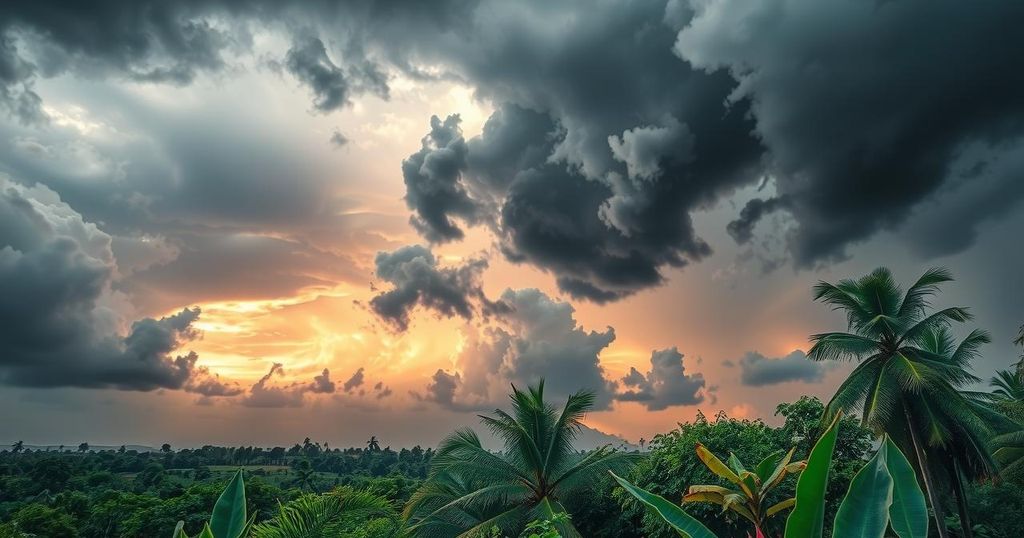Madagascar Cyclone Dikeledi Update – Impact and Response

Tropical Cyclone Dikeledi has affected over 7,000 people in Madagascar, damaging homes and disrupting education for thousands of children. Displaced individuals are returning to their homes, while heavy weather is expected on the southwest coast. Government and humanitarian partners are providing critical assistance to those affected and monitoring the cyclone’s path.
Tropical Cyclone Dikeledi has impacted Madagascar severely, affecting over 7,000 individuals, damaging more than 1,000 houses, and destroying 203. As of January 15, displaced persons in the north have returned home, and schools resumed on January 13, despite disruptions to education for over 8,000 children due to damaged classrooms. The southwest coast, particularly Toliara Province, is anticipated to face intense weather conditions as the cyclone intensifies from January 15 to 16. The government and humanitarian organizations are actively providing aid to those impacted while closely monitoring the cyclone’s path.
The National Office for Risk and Disaster Management (BNGRC) reported that a total of 7,028 people, comprising 2,284 families, have been directly affected, especially in the regions of Diana and Sava. At least three fatalities have been recorded. Initial impact assessments noted that approximately 1,185 houses experienced flooding, while over 200 structures were destroyed. Education has suffered significantly, with winds damaging numerous classrooms, thus interrupting learning for thousands of children.
As of January 15, Cyclone Dikeledi has strengthened into a tropical cyclone and is located around 200 kilometers off Madagascar’s southwest coast. It is projected to evolve into a more intense cyclone between January 15 and 16, while remaining at a safe distance from populated areas. The cyclone is expected to begin veering away towards subtropical latitudes as it weakens over cooler waters, thereby minimizing risks to coastal populations.
Response efforts by the Government of Madagascar include the deployment of pre-positioned humanitarian stocks, with food assistance reaching 314 families in affected regions. The water, sanitation, and hygiene (WASH) sector distributed essential items to over 40 families. Schools are gradually reopening, and educational experts are being sent to areas in need. Additionally, child-friendly spaces are being established, and the health sector continues to provide free medical care while monitoring for disease outbreaks. Early warning systems for severe weather and strong sea swells are also in action, leading to temporary closures at the Toliara port.
Following the passing of Tropical Cyclone Dikeledi on January 11, Madagascar experienced significant damage, especially in the northern regions. The cyclone has affected thousands, causing loss of life, infrastructure damage, and educational disruptions. The government, along with humanitarian partners, is mobilizing resources and support to address the immediate needs of the affected populations, while also preparing for the cyclone’s continued intensity as it approaches the southwest coast.
Tropical Cyclone Dikeledi has resulted in considerable disruption and damage across Madagascar, particularly affecting housing and education. While many displaced individuals have returned home, the cyclone continues to pose a threat as it intensifies off the southwest coast. Government and humanitarian responses are ongoing to provide urgent assistance in the wake of the disaster, emphasizing the need for effective coordination and support in impacted communities.
Original Source: www.unocha.org







